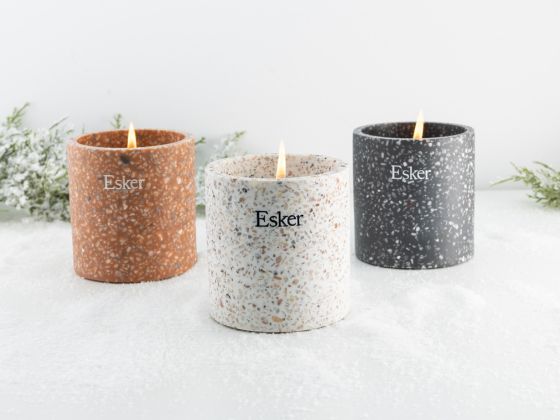It’s no secret that we really love plants around here. When Esker was in its early stages, the joy and appreciation that unfolded as we learned more about the power of botanical life set the stage for both our standards regarding Esker’s ingredients, and our standards for how we treat the natural world around us.
For us, that began with understanding the power of pollinators and learning how to become better stewards towards them and the resources they provide, so that they in turn can continue to pollinate plants and sustain are ecosystem!
What are Pollinators?
Simply put, pollinators are insects and animals that cause plants to produce seeds, fruit, and future generations of plants. Pollinators are responsible for over 85% of the world’s flowering plants, including more than two-thirds of the world’s crop species *cue gasp and loving gaze at small collection of house plants*. Some of the most common pollinators helping our planet include butterflies, moths birds, and-- most importantly-- bees (more on that later). All of these little guys are able to pollinate by carrying pollen from the male part of the flower (stamen) to the female part of the same or another flower (stigma). While some plants are able to self-fertilize or are fertilized through wind or water, the movement of pollen from the male to female part of a flower must occur in order for the plant to produce seeds, fruit, and new plant growth.
35% of the entire world's food crops depend on pollinators in order to reproduce and thrive.
While it’s cute to think little insects are pollinating plants simply because it helps make the world go round, they’re actually visiting flowers in search of food, nest-building materials, shelter, and occasionally even a partner to mate with. In the process, they accidentally pick up pollen and as they move about their days. Bees, who are by far the largest and most important group of pollinators on earth, intentionally collect pollen as it’s vital to their hives, it acts as their main source of protein, and carries a wide range of essential nutritional components including calcium, potassium, sodium, and amino acids.

Why are they important?
Whether you realize it or not, you very likely rely on or encounter the magical work of pollinators on a daily basis! If you wake up and start your morning with a cup of coffee and some yogurt with blueberries and honey, pollinators have, at some point in time, helped make your ritual possible. To put it into even more perspective, experts have concluded that one out of every three bites of food you eat exists because of the work of pollinators.

But on a more important and macro scale, we need pollinators in order to have food! 35% of the entire world’s food crops depend on pollinators in order to reproduce and thrive. Flowering plants that rely on pollinators to survive are also responsible for producing half of the world’s oils, fibers, and raw materials used to manufacture goods across our globe (including everything that goes into natural skincare). The U.S. alone grows more than 100 different types of crops that need or benefit from the work of pollinators, which is estimated to be worth $3 billion per year. On a grander scale, pollinators add an estimated $217 billion to the global economy, and honey bees contribute to nearly $5 billion of that total value.

How can we help?
The more we learn about pollinators, the more thankful we’ve become for the miraculous but virtually invisible work they do for our earth. As a natural brand, we source ingredients that undoubtedly rely on pollinators, and it’s impossible not to recognize that large populations of bees and butterflies are declining around the world due to global warming, habitat loss, and urban sprawl.
However, there’s a lot you can do to start changing the course for bees, butterflies, and other pollinating insects. In addition to the ways we've listed below, we also include a packet of pollinator-friendly wildflower seeds in every single Esker product box so that you can help pollinators directly from your own backyard. We also like to spread the word with our "Plant a Flower, Feed a Bee" bumper sticker available on Esker's shop!
These are a handful of the ways we like to contribute to the pollinators that keep our ecosystems flourishing:
-
PLANT NATIVE
Plant flowers and plants native to the area in which you live. Over the ages, pollinators have evolved alongside native plants which are adapted to the local growing season, climate, and soils in the area, making it easier for animals and insects to pollinate.
-
GO PESTICIDE FREE
Refrain from using pesticides in your garden. When pesticides are sprayed across plants, they still affect the plant’s pollen and nectar, making it poisonous for insects and unusable for pollinating.
-
SHOP LOCAL
Buy local honey in your area and support your local beekeepers! Eating honey that’s local to your area can strengthen your immune system, reduce the potential of pollen allergy issues, and supports the environmental health of your own town (and the bees that live there).
-
SUPPORT NON-PROFITS
Support non-profits like the Xerces Society (We're proud supporters of Xerces Society's work), Planet Bee, and the Wildflower Center, all of whom share a mission to conserve and protect pollinators, and to educate others on environmental stewardship. Chances are there is someone in your town or city keeping bees or running small nonprofits aimed to protect and educate on pollinators, so take the time to get involved in your community to help pollinators and our planet!





